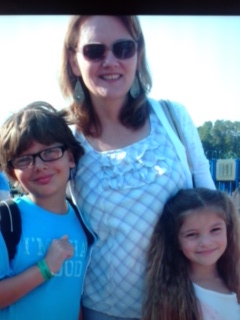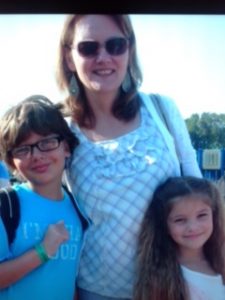8/21/2017
·Enable high contrast reading
The Question: So, how many kids do you have?

 For those of us who have lost a child, for the newly bereaved parent, there is a question that slaps us in the face, makes us catch our breath and pause. No one has warned us. We sit vulnerable at a ball game, a beach, a BBQ, or a school activity of our surviving progeny. We are trying to readapt to the world in spite of our broken hearts, wanting to blend in, seeking to deal with life for a few hours rather than death.
For those of us who have lost a child, for the newly bereaved parent, there is a question that slaps us in the face, makes us catch our breath and pause. No one has warned us. We sit vulnerable at a ball game, a beach, a BBQ, or a school activity of our surviving progeny. We are trying to readapt to the world in spite of our broken hearts, wanting to blend in, seeking to deal with life for a few hours rather than death.
We have just met you. We don’t want to engage you in tragedy and sorrow. If we got to know each other, sharing would become a natural part of the relationship, but when you ask this one question of strangers, you sometimes leave parents of loss, at a loss.
“So, how many kids do you have?”
There. You have asked, and now, we the bereaved, ask ourselves “how far will this go?” We do not want to deny our deceased existed, nor do we want to tell you (within the first five minutes of our meeting) about our precious child no longer living. If we say we have two children, inevitably you will ask more questions about their age, activities, likes, dislikes, etc. Eventually, unless denying our child lived, we will have to tell you that he or she died. Most strangers will not even allow the simple evasion of facts by the mention of “that’s my son pitching.” That strategy is met with the likes of this question: “Do you have other children?”
Once we answer truthfully, the conversation is over. This was more than you wanted to deal with on a Saturday morning while watching a ball game. “If this person’s child could die, my child could die,” you begin to think. And you don’t want to go there. We, the parents of loss, have ruined your day because you asked us a simple question.
But our day has been ruined as well–especially when you are the first to ask this question after the death of a child. If someone does not warn us, the first time this question is asked of us after a child’s passing, we are blown away. We pause, uncomfortably so, trying to think of how to answer this once simple question.
When telling strangers the truth, we sometimes share more than we want or intend to and can end up feeling something has been stolen from us. When we lie to avoid more questions than we can comfortably answer, we feel as if we have cheated our child, denied them their existence. Again, we can feel something has been stolen from us even if we have done this in self-preservation against an onslaught of tears that may not stop once started. How much information does a stranger seeking casual conversation deserve?
The question is not as casual and as innocuous as it seems. The fact is this: SOME CHILDREN DIE. Some of us have had to bury our children. After living a while with this incredible loss, I personally find it easier to answer openly and honestly without wavering. But there are also days when I feel the person asking the question does not deserve the story and I avoid full disclosure without denying my daughter.
With time, most parents who have lost children come up with an answer that honors their deceased child without destroying themselves emotionally. This is what we must do, because people will continue to ask “How many children do you have?”


